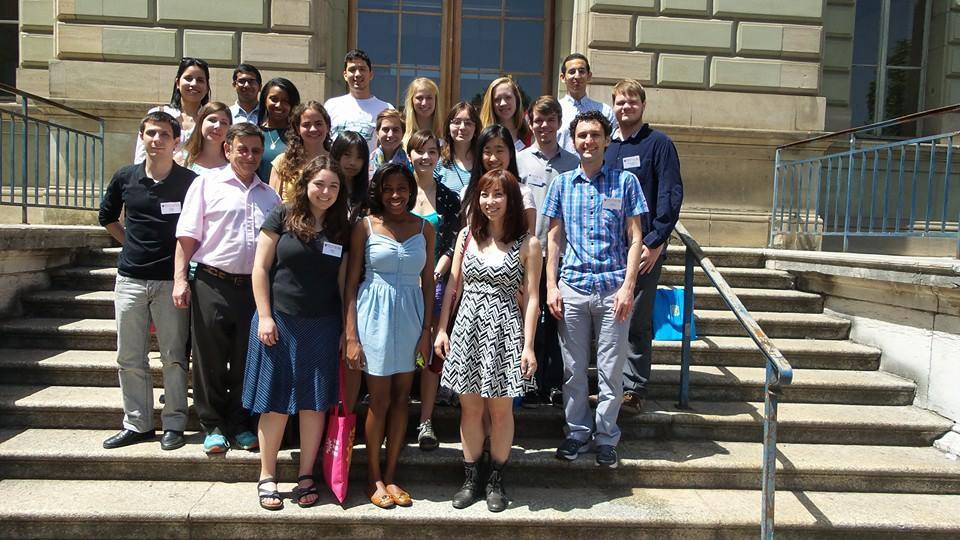A few months ago, I went to Geneva to participate in one of Princeton's Global Seminars. Global Seminars are seminar courses organized by the Princeton Institute for International and Regional Studies in locations around the world where Princeton students are given the opportunity to explore an aspect of life in that region.
I participated in the summer Global Seminar held in Geneva titled “Our Multilingual World: Regional and Global Responses to Linguistic Diversity.” The idea was to understand better how communities across the world have reacted to the multiplicity of languages spoken within them. Geneva was chosen as the ideal location to be studying such reactions, as it experiences multilingualism locally due to large migrant populations, nationally due to the plurality of national languages (Switzerland has four national languages), and globally through the plethora of international organizations with offices in Geneva.
Witnessing and studying these communication dynamics was an amazing experience for those of us in this seminar. We were able to extend our readings and classroom discussions by activities such as venturing through Geneva to establish a linguistic landscape of the city; exploring the high Alps to understand the attitudes toward Switzerland's fourth and least-spoken national language, Romansh; or by witnessing the teams of interpreters and translators at the International Labour Conference in the United Nations Office.

Discussions led by such leading academics and personalities as Barbara Moses-Mercer, a pioneer in training interpreters in conflict zones, and François Grin, a renowned economist focusing on language policy, challenged us to reconsider the role of languages in communities and vice versa.
Most of our classes were taught by the incredible Princeton Prof. David Bellos, a renowned translator and writer on translation, who had also written the primary course book for the class. Learning from him and interacting with him on a daily basis was, for many of us, one of the most enriching parts of our experience in the Global Seminar. We realized how privileged we were to be taught by him when we saw him give a speech on the challenges of translation to a packed lecture hall of professional translators and interpreters in the United Nations Office in Geneva. Seeing this revealed to us the high esteem that he enjoys among translators.
The most memorable part of the Global Seminar for me was interacting with the other members of the group. There were 15 Princeton University students, and five University of Geneva students, and everybody came from very diverse linguistic backgrounds and was incredibly passionate about languages. Our conversations would inevitably turn toward languages and their relationship to cultures and societies. We would discuss Hebrew's treatment of gender, Russian's treatment of clausal structures and other linguistically fascinating concepts. Having a group of people who were so incredibly passionate about languages was the most fun part of the program for me.

This summer was the most perfect summer that I could imagine for myself, mostly because I was being challenged, excited and enthralled while on my Global Seminar. The friendships and conversations I started there have continued and enriched on-campus, and the ideas that were planted in me have continued to challenge the way I look at the world.






